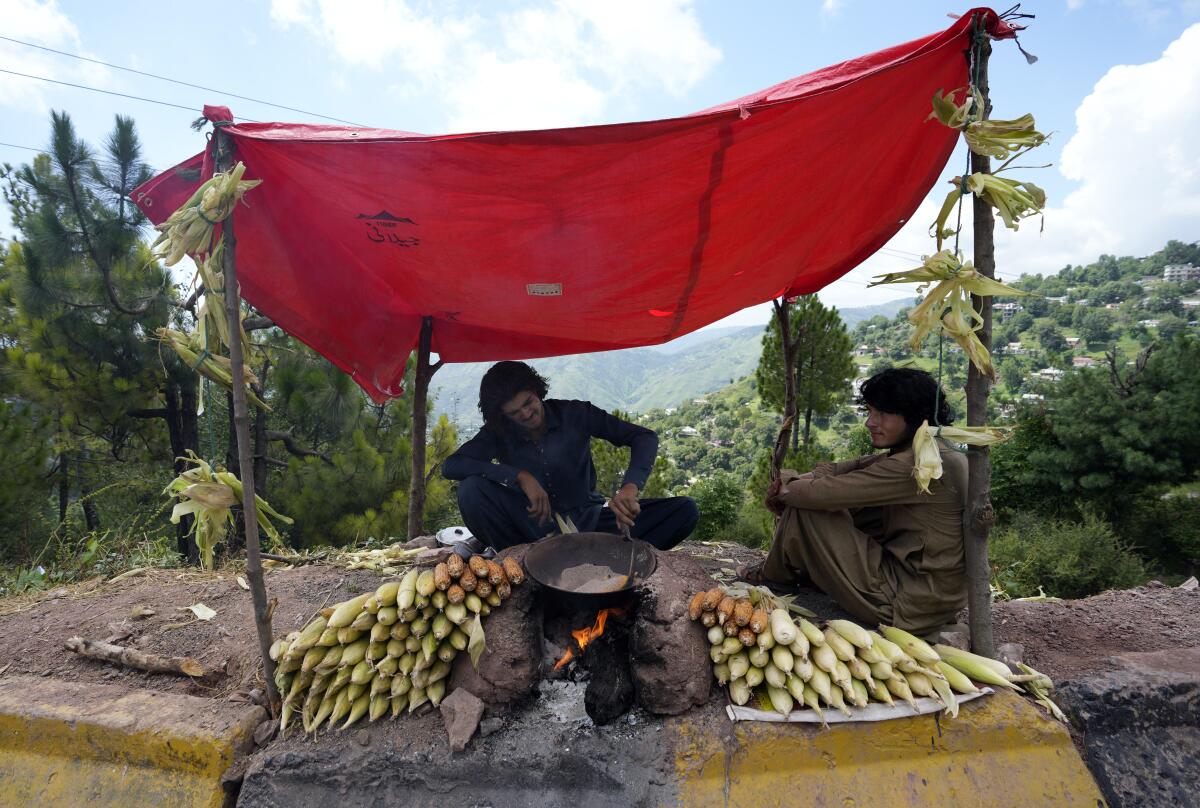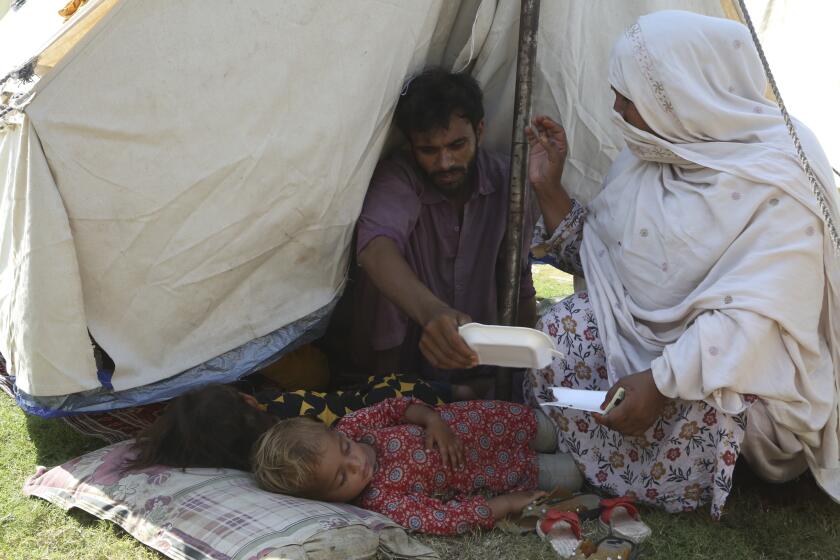IMF approves $3-billion bailout for Pakistan, saving it from defaulting on debt

- Share via
ISLAMABAD, Pakistan — The International Monetary Fund approved a much-awaited $3-billion bailout for Pakistan on Wednesday, the global lender said, a move likely to save the nation from defaulting on its debt repayments.
The IMF said its executive board approved an agreement to release the funds over nine months to support Pakistan’s economic stabilization program.
The announcement comes less than two weeks after Pakistan and the IMF agreed to the plan following meetings with Prime Minister Shehbaz Sharif, Finance Minister Ishaq Dar and other officials.
“The arrangement comes at a challenging economic juncture for Pakistan. A difficult external environment, devastating floods, and policy missteps have led to large fiscal and external deficits, rising inflation, and eroded reserve buffers” in the fiscal year 2023, the IMF said in a statement.
Later, IMF head Kristalina Georgieva said in a statement that “Pakistan’s economy was hit hard by significant shocks last year, notably the spillovers from the severe impacts of floods, the large volatility in commodity prices, and the tightening of external and domestic financing conditions.”
She said the $3-billion bailout, if “implemented faithfully” by Pakistan, would give it an opportunity to regain macroeconomic stability and address imbalances through consistent policy implementation.
Pakistani flood survivors recount how the surging waters were like nothing they had ever seen before, striking their homes swiftly and brutally.
Sharif quickly welcomed the IMF decision, saying it was a major step forward in the government’s efforts to stabilize the economy.
“It bolsters Pakistan’s economic position to overcome immediate to medium-term economic challenges, giving the next government the fiscal space to chart the way forward,” he said in a tweet. “This milestone, which was achieved against the heaviest of odds & against seemingly impossible deadline, could not have been possible without excellent team effort.”
The bailout had been on hold since December when the IMF refused to release a critical $1.1-billion part of the loan because of the country’s lack of compliance with a 2019 agreement signed between the IMF and former Prime Minister Imran Khan.
A breakthrough was announced recently after Sharif met with Georgieva in Paris at the Summit for a New Global Financing Pact to discuss the revival of the $6-billion bailout package amid shrinking foreign exchange reserves and increasing inflation, which resulted in higher food costs.
The suicide attack that killed 100 people in a Sunni mosque in Peshawar was one of the deadliest targeting Pakistani security forces in recent years.
Sharif has been trying to overcome the economic crisis since he came into power after Khan was ousted in a no-confidence vote in parliament in April 2022. Pakistan’s economy witnessed a major shock last summer when devastating floods killed 1,739 people, destroyed 2 million homes and caused $30 billion in damage.
“Things are now moving in the right direction,” Dar, the finance minister, said Wednesday.
According to analysts, Pakistan needs at least $20 billion in the next two years to pay back foreign loans with interest. However, earlier this year, foreign exchange reserves fell to less than $4 billion. This money was only enough for the import bill for four weeks, although Pakistan banned some imports to save dollars.
The approval for the IMF loan came a day after Saudi Arabia deposited $2 billion into Pakistan’s central bank. On Wednesday, the United Arab Emirates also deposited $1 billion in the central bank, according to Dar.
According to analysts, the approval of the IMF bailout will help Pakistan because it could encourage other international financial institutions to help Islamabad overcome economic challenges. In addition to Saudi Arabia and the UAE, China has provided financial assistance to avoid a Pakistani default on debt payments.
More to Read
Sign up for Essential California
The most important California stories and recommendations in your inbox every morning.
You may occasionally receive promotional content from the Los Angeles Times.












